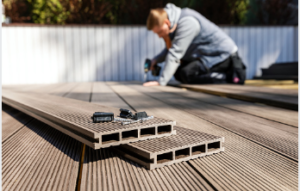When designing or renovating your deck Adelaide, selecting the appropriate material is paramount. Unfortunately, with so many options available, it can be easy to feel overwhelmed.
But ultimately, the ideal option for you depends on your needs, location and budget. So we’ve gathered some of the top materials to help you start your decking project.
 Eco-Friendly
Eco-Friendly
When selecting a deck material, opt for one that is eco-friendly. It ensures it won’t pollute air, soil, or water and is made from sustainable resources that can be used over an extended period.
When shopping for wood, make sure it has been harvested sustainably. It is especially essential when selecting exotic species like teak and pipe, which may have been harvested without due care.
Another consideration when selecting deck Adelaide material is its recyclable status. It can reduce the environmental impact of the process since less waste will need to be sent to landfill after use.
Composite materials often use recycled plastic and reclaimed wood in their production, which can reduce the environmental impact of manufacturing. They may also be produced with minimal energy consumption, helping reduce greenhouse gas emissions.
Sustainable materials are typically sourced from responsibly managed local forests. Furthermore, some may participate in carbon offsetting programs which help reduce the need for fossil fuels used during production and shipping.
ther eco-friendly deck materials exist, such as bamboo, which is biodegradable and requires minimal upkeep. It’s ideal for those who want to avoid the chemicals in many wood products.
Durability
Durability is a paramount factor to consider when selecting materials for your deck. If it is exposed to moisture and UV rays from the sun, ensure the deck material won’t warp, split, or splinter over time.
Hardwoods are usually the best outdoor decks due to their natural beauty, rot, insects, and decay resistance. Unfortunately, these woods require regular upkeep to keep them looking great and providing safety.
When selecting hardwoods for your outdoor space, there are several varieties: cedar, redwood and tropical hardwoods. While these woods are highly durable, they may not be the most suitable fit for your area’s climate and environment.
Opt for lighter-coloured deck boards (like cool grey) if your deck Adelaide is exposed to intense sunlight. Lighter materials absorb fewer harmful UV rays from the sun and tend not to heat up as quickly.
Another way to increase durability is by selecting lumber treated with chemical preservatives. This process often involves pressure-treated wood and can provide a slightly more resilient option than standard lumber, though still far short of the modern composites available on the market.
In addition to making your deck more durable, this treatment prevents it from absorbing water like regular wood. As a result, your deck won’t be vulnerable to moisture-induced damage like rot and insect infestations.
It makes it a popular choice for outdoor decks in hot climates. In addition, wood-only options offer homeowners an attractive and long-lasting alternative to the more traditional wood deck.
In addition to being more durable, synthetic materials are easier to clean than natural stone or wood. Plus, you can install them however you want, giving you the perfect match for your deck’s design.
Recyclable
Wood is an abundant natural resource that can be recycled to create new products. For instance, wooden chairs can be reused as benches or tables, and old sofas can be transformed into coffee tables. Not only does this reduce the need for new furniture, but it also helps reduce carbon emissions associated with manufacturing and transporting these materials.
Sustainable outdoor decking can be constructed from various kinds of wood, such as redwood, western red cedar, Nootka cypress, pine, Douglas fir and bamboo. These species have low carbon footprints and are also resistant to decay – meaning they last longer outdoors to store carbon rather than release it into the air.
Sustainable outdoor decking should be made from wood harvested from a managed forest. This resource is renewable, but wood contributes to environmental friendliness as it doesn’t need fertilisers or pesticides for growth and decomposes more slowly than other materials.
Bamboo is another sustainable wood, as it grows from grass that matures within two to three years and requires no fertilisers or pesticides for cultivation or regrowth. Furthermore, its lightweight nature allows it to be transported by truck without contributing to greenhouse gas emissions produced during shipping.
